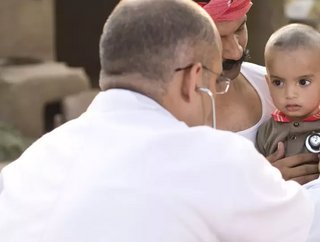'Plug and Play' telehealth programme trialled in rural India

In India, the Technology Information Forecasting and Assessment Council (TIFAC) has launched a ‘Plug and Play’ telehealth programme, to serve patients living in rural areas.
Working together with the Indian Institute of Technology-Madras Pravartak Technologies Foundation and the Centre for Development of Advanced Computing in Mohali, the programme was introduced at the Banaras Hindu University (BHU), with approval from healthcare workers.
TIFAC hopes the project will initially support up to 60,000 patients across:
- Varanasi
- Gorakhpur
- Kamjong
'Plug and play' telehealth will help women and children
The pilot digital health programme specifically aims to provide healthcare to women and children who live in remote areas.
The highlights of ‘Plug and Play’ include:
- High quality patient examinations via wearable devices
- The e-Sanjeevani doctor-to-patient telemedicine system which processes the health data transfer
- The plug and play model will be able to track physiologic parameters, such as ECG, heart rate, blood pressure, lipid profile, haemoglobin and foetal doppler
Banaras Hindu University professor Amit Rastogi is the telehealth project's local convener in Varanasi, the ‘spiritual capital of India’, where the majority of the population live in rural locations. Rastogi said that access to healthcare in villages was "needed".
Union minister of state for Science and Technology, Dr Jitendra Singh, also said that telemedicine innovations will help India save between US$4-5bn annually.
After the damage caused by Covid-19, telehealth plans are proving popular
Covid-19 has desolated India, which has seen over 30mn cases and 482,000 deaths.
Sadly, experts think that the total number of deaths across rural India must be higher than the official statistics suggest, due to the lack of healthcare professionals working in these communities.
Telehealth options will create more accurate Covid-19 data and will allow patients of other illnesses to get the healthcare support they need, while maintaining social distancing.
- McKinsey: ‘Women’s Healthcare Neglected for Decades'Digital Healthcare
- Comarch Diagnostic Point Boost for European Health InsuranceHealth Insurance & Finance
- AHS’ Technology Transformation is Revolutionising HealthcareTechnology & AI
- GE Healthcare: Defining the Future of Healthcare TechnologyTechnology & AI






